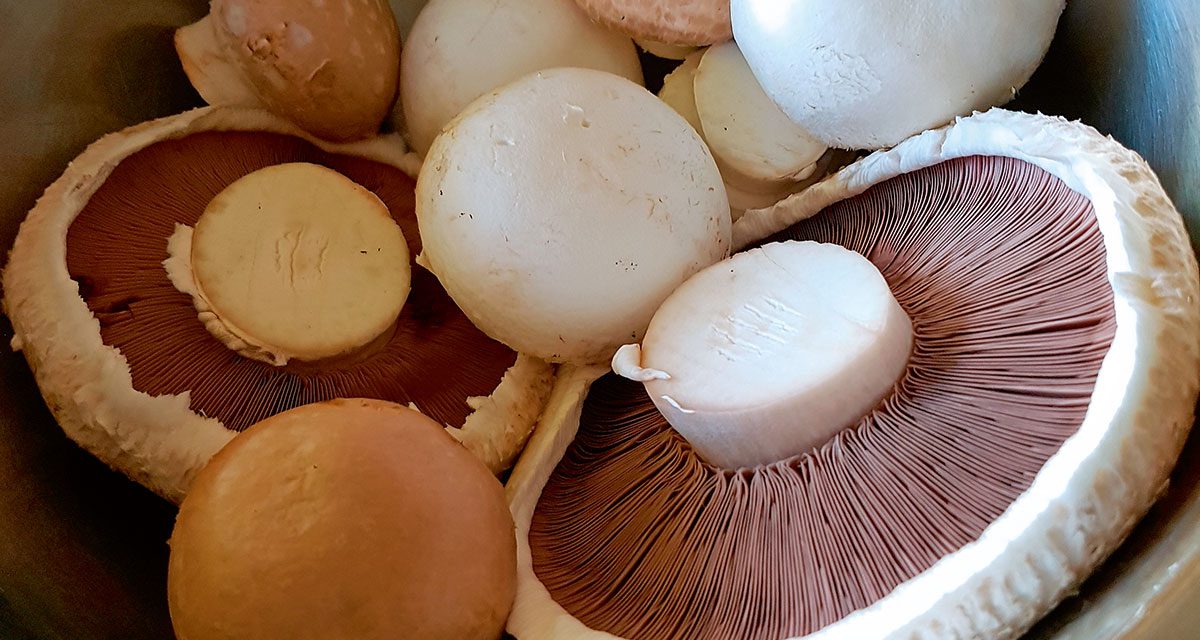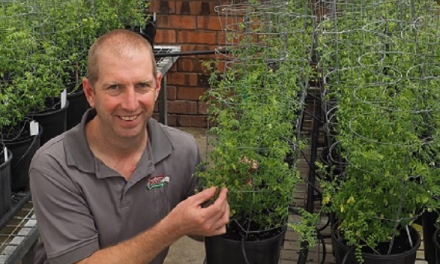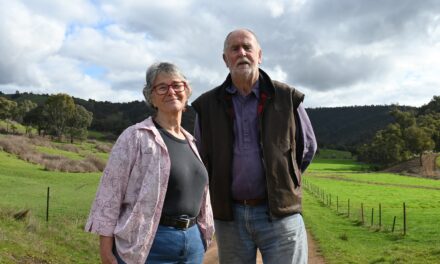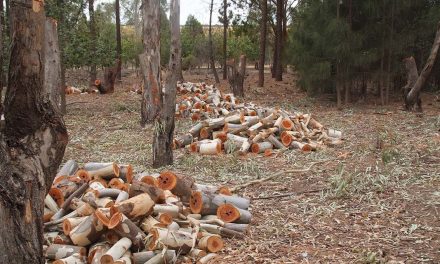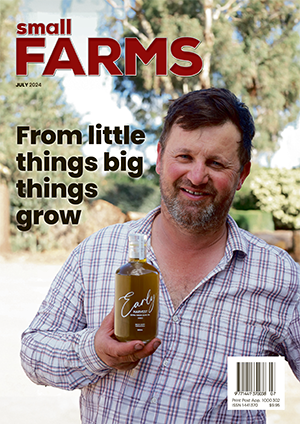If you are looking for a fast-growth product you need go no further than the humble mushroom. One family with a decidedly international flavour has turned their small venture into a booming business. SOPHIE BALDWIN reports
IF YOU are going to do anything, do it from the heart and do it with passion.
It’s a motto that has served Chris Pyol well throughout his life.
Chris and his wife Anne Marie have applied that same trademark heart and passion to establishing their business Gippsland Mushrooms and from humble beginnings and zero knowledge they now produce around 600–800 kg a week of Swiss brown, button, Portobello and flat mushrooms.
In fact they have been known to deliver up to 120 kg of mushrooms in a day.
Chris has always wanted to be a farmer, he just never really knew where or what type.
In 2013 he was reading a rural newspaper and came across an advertisement for some mushroom equipment, including growing racks, picking trolleys, a forklift and pumps.
Having a disused shed on his property was the clincher and the ad sparked enough curiosity in Chris that he decided to grab Anne Marie and drive down for a look.
The rest, as they say, is history.
It took the couple 12 months — making the trip once a week — to dismantle the equipment, rebuild and learn the mushroom growing process along the way.
Chris was able to capitalise on his engineering background to build the facility and with the back shed ready and the mushrooms growing the couple began their foray.
Clearly they had picked a winner — within 12 months demand forcing them to move from their 1 ha property at Daylston to 47 ha at Blackwood Forest.
While growing mushrooms is a relatively straightforward process, it is labour intensive — and the biggest pitfall is disease.
The mushrooms are grown in one of six darkened, temperature controlled rooms and within 18 days the first flush is harvested, with mushrooms doubling in size within 24 hours.
They are grown in a compost made of straw, chicken manure, gypsum and mushroom spores, and a thin layer of peat.
It is vital the mushrooms are kept in this dark, temperature controlled (18–19C) environment.
They are also watered by hand, dependent upon their needs
Most varieties are picked around day 18 but the couple can expand the range by leaving some in the compost a little longer — a Swiss brown will grow into a large Portobello, while a button becomes a flat field mushroom, up to 500 g in some instances.
Each batch of compost produces four flushes — anymore and disease becomes a risk and the mushrooms themselves produce less and start to lose uniform shape.
After each growth cycle (six weeks) the rooms are cleaned with a hospital grade disinfectant and a new batch of compost is brought in.
And the cycle begins again.
In fact it never stops as the process is repeated 365 days a year by the couple, with a little help from some backpacker labour.
Once the compost and peat is removed it becomes a popular by-product and is sold as garden compost, adding to the cash flow.
Gippsland Mushrooms are extremely popular and Chris said demand could easily see production double — but that wasn’t always the case.
The first market they sold their mushrooms at was a little bit of a disaster.
“We sold some mushrooms but came home with kilos and kilos — we had mushrooms coming out of our ears.
“Anne Marie was really stressed but I put my arm around here and said ‘darling, everything will be OK, we can’t eat them all so we will give them away’.
“Within 48 hours the phone started ringing and it hasn’t stopped since.”
Chris said because there was no middle man involved in their business, the mushrooms always arrive to the customers as fresh as they possibly can.
“Our customers are amazing and support us very well. They always say how fresh our mushrooms are and how well they last compared to those that can be found in other outlets.”
The other key to their success, despite their hard work and passion, is their customer service.
“We might get asked to deliver some more mushrooms because a customer has run out and we are happy to make a special delivery, but quite often we end up staying for tea,” he laughed.
They have a strong and loyal customer base which sees them supplying restaurants, supermarkets and, of course, their direct customers.
The couple are also happy to share their business with others, regularly hosting tours of their facility.
Chris has also been known to send the odd box of mushrooms back to school so children who have toured the facility can share in the joy of growing mushrooms in the classroom.
He is a sharer and considering he missed out on learning how to read and write when he was young, he has certainly never let that get in the way of his success.
Moving from his home country of Spain to Germany as a five-year-old and then on to Australia, Chris’ education suffered.
“We lived in Germany for three years before we came to Australia so I missed a lot of my early school years, but living in Germany was where I discovered my love for farming.”
Chris said he was able to hide his lack of literary skills fairly well because he was an obsessive sponge.
“I am a great listener and have trained my brain to take everything in — but I did spend my school years terrified the teachers were going to ask me to read a paragraph from the board.”
He couldn’t leave school quickly enough and at 15 he was out of the door and into the workforce.
In later years Chris did go on to learn to read but he says his writing to this day remains very ordinary.
“I never let my lack of skills stop me from doing what I wanted. I always found a way through with determination and passion.”
Chris’ sharing of his journey has also inspired others.
“I did an interview on ABC radio and someone came up to me and said ‘you gave me hope Chris. I always wanted to live in the country and you said the hardest step is always taking the first one and now I live in the country’.
“And how great is that,” he smiled.
Sadly Chris and Anne Marie are now looking to sell their mushroom business, a gravely ill son has made them pause for reflection.
“It’s time to spend more time with him and slow down.”
Although it’s hard to imagine this Spanish dynamo ever slowing down.

